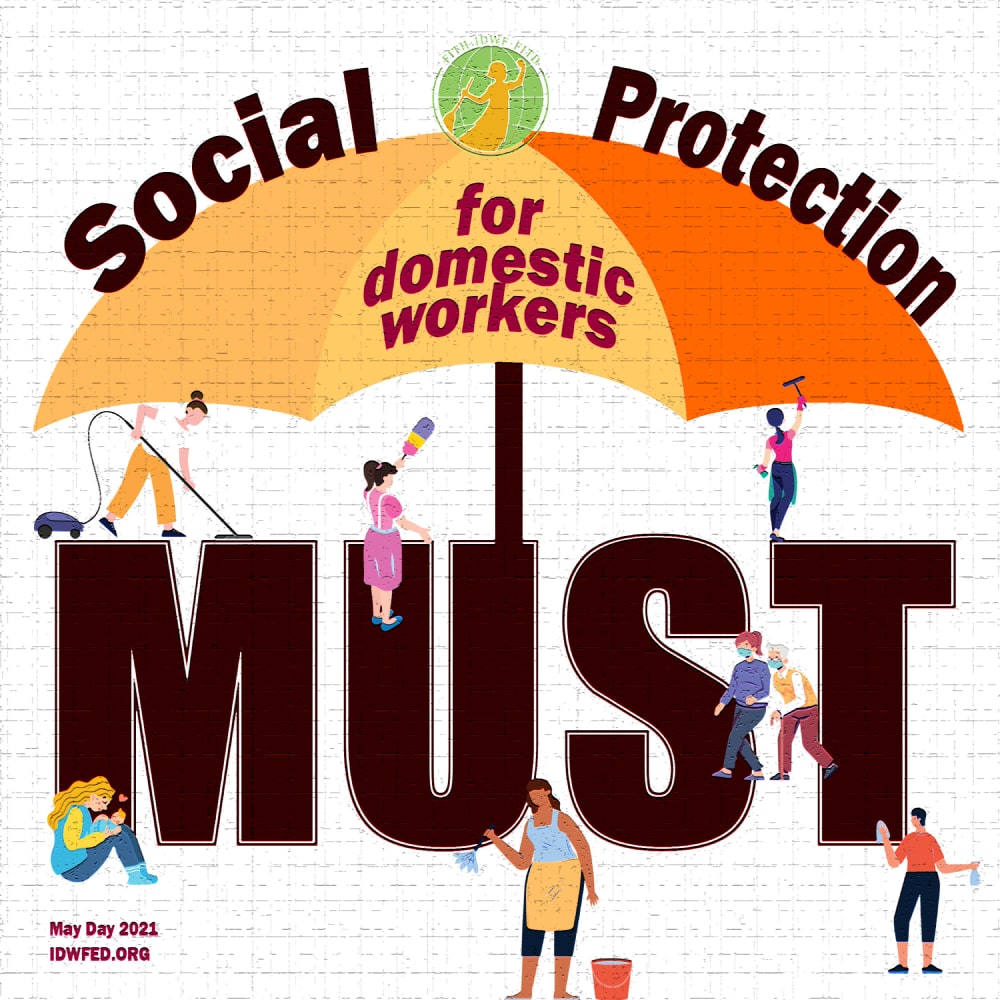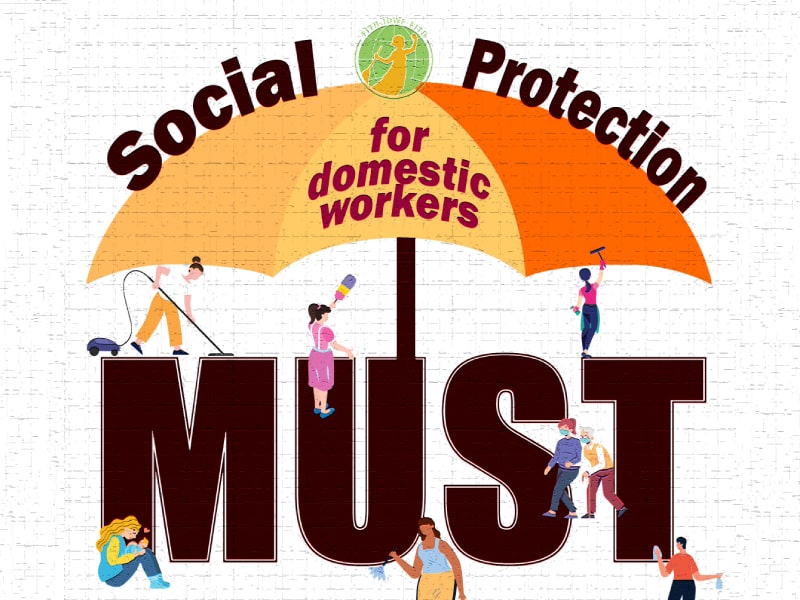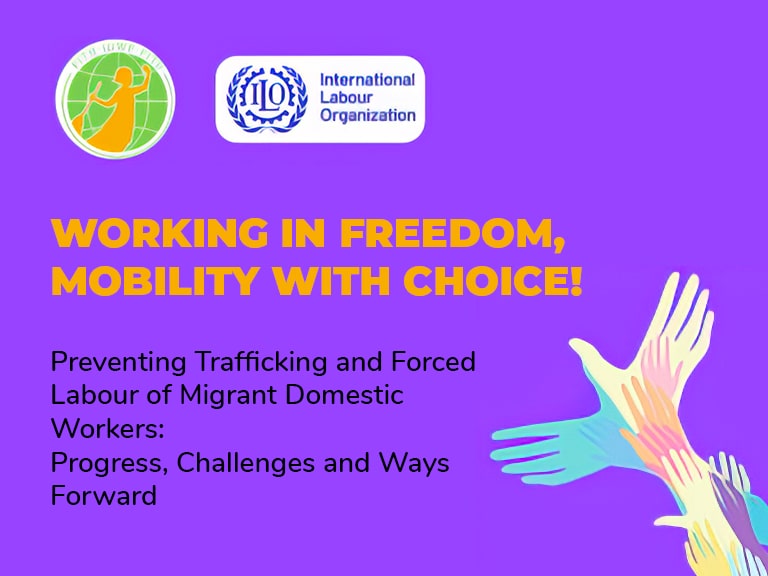- This event has passed.
May day 2021: Against incidental survival: Social protection for domestic workers is not luxury, it is a must
“Social protection must not be the exclusionary luxury of some workers only, but a basic undeniable right for domestic workers as well,” said Myrtle Witbooi, President of IDWF. “No recovery would be possible otherwise.”
Against Incidental Survival:
Social Protection for Domestic Workers is not Luxury, it is a Must.
On May 1st , the International Labour Day, 2021, the International Domestic Workers Federation (IDWF) calls all states to put priority efforts in addressing the social protection needs of domestic workers, through their inclusion in national laws meeting international standards. Domestic workers have always been discriminated against as basic gains of the labor movements were often not extended to them, albeit taken for granted in many formal sectors of the economy. This speaks to a systemic vicious suppression of those most vulnerable.
This year on the International Labour Day,
“Social protection must not be the exclusionary luxury of some workers only, but a basic undeniable right for domestic workers as well,” said Myrtle Witbooi, President of IDWF.
“No recovery would be possible otherwise.”
Until today, when almost a decade has elapsed since the adoption of the ILO Domestic Workers Convention C189 stipulating that domestic work is work, many states still exclude domestic workers from social protection and relief measures. According to the ILO report, 90% of domestic workers globally are legally excluded from social security protection, Domestic Workers survival within this crisis is thus left for mere luck: a product of our ingenuity and of charitable work. But our sector cannot rely on charity, for domestic workers must have social protection and have it now.
We are witnessing a growing support for domestic workers’ roles in the sustenance of lives and livelihoods, as their labor remained a necessity during a time when most sectors shutdown. This support must not remain rhetorical and our workforce must not be treated as disposable. Over 55 million domestic workers were impacted by the global COVID-19 pandemic, according to an ILO survey conducted from March to June 2021. A year later, the statistics kept increasing, and in Brazil alone, the layoffs attained 1.8 million jobs. To survive the pandemic, some domestic workers had to redirect their personal savings from their children’s education towards the emergency. The goals for which they have worked so hard and for so many years would remain unmet. Many domestic workers cut their spending, choosing which meal per day to consume, what necessity to prioritize: such inhumane choices should never be faced by anyone. Many will also retire empty-handed.
Fair wages, maternity leaves, retirement funds, paid sick leaves, and severance pay, must not be the exclusionary luxury of some, but basic undeniable labor rights.
Borrowing money or getting small loans exacerbates the precarity of domestic workers, as many are already in debt bondage. Albeit a band-aid solution, borrowing money or food is an option unavailable to many: knee-deep in debt, many found themselves with decreasing networks of family and friends that could assist them. In the context of migration where domestic workers are tied to recruitment agencies and employers, their isolation and economic insecurity increased. While some were forced to perform free labor, others found themselves under the threat of eviction. With little shelters equipped with social distancing measures, they had to move their struggle to the streets.
Written employment contracts, freedom from debt bondage and forced labor, fair recruitment, migration, and regularization pathways must not be the exclusionary luxury of some, but basic undeniable labor rights.
Over the past year, as surveyed by the IDWF, governmental support to domestic workers was in most cases coincidental because they lived in a household that was somewhat included in relief plans. Domestic workers’ immediate survival was not targeted by relief action under the pandemic.
On this day, we reiterate that governments, employers, and stakeholders must make a daily investment and commitment to protect domestic workers, purposefully, immediately, and rigorously, so that our survival is not collateral.









